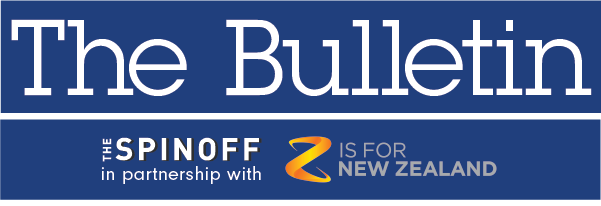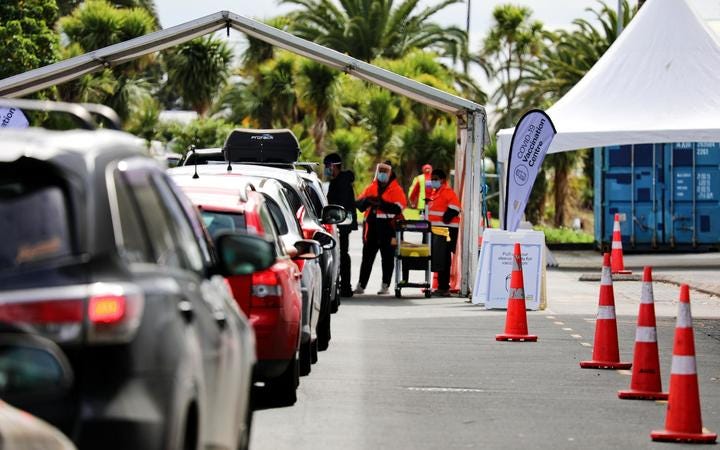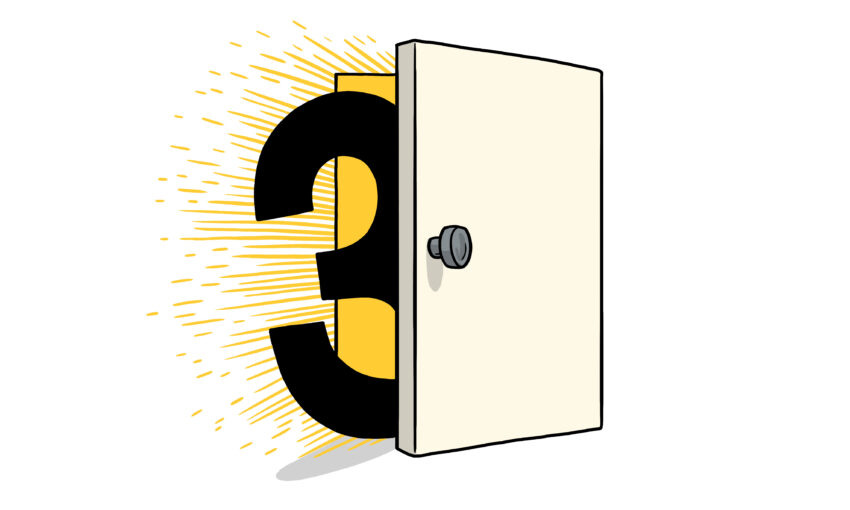Possible vaccine slowdown as PM seeks more doses
After breaking records in recent days, the Covid-19 vaccination effort is using up the country's stockpile of jabs quickly.
Good morning and welcome to The Bulletin for Tuesday, August 31, by Justin Giovannetti. Presented in partnership with Z Energy
In today’s edition: The challenges facing a red hot vaccine drive, Auckland’s lockdown is extended and NZ’s first death from the Pfizer vaccination is reported.
The drive-through vaccination centre at the Trusts Arena last week. (RNZ/Nick Monro)
The Covid-19 vaccination programme faces the perils of success. After hitting records in recent days with the brakes taken off the vaccine effort, a possible slowdown now looms. It’s a matter of simple arithmetic. There are about 840,000 doses of the Pfizer vaccine currently in the country, with new deliveries adding over 300,000 a week. However New Zealand is currently administering about 525,000 doses a week.
The actual maths is a little more difficult. There are questions about how many doses are actually in storage. The number of doses in the delivery pipeline is fluctuating and daily usage is highly variable and increasing. While the crucial date is unclear, the programme could face a serious challenge within weeks unless something changes. The government won’t want to let storage dwindle to zero before acting.
We got here attempting to avoid a delta outbreak. The possible slowdown is partly a reflection of a decision made only days before the delta outbreak was detected to aggressively expand the vaccine programme. For example, someone in their 30s could now get a first dose months earlier than once planned. The rules were also changed to double the gap between jabs as a way of increasing first doses.
The government is trying to secure more doses. While the Beehive is sharing few details, it’s working on a plan to keep the programme going at white-hot levels. More than 90,000 doses were delivered on Friday alone. As Thomas Coughlan reported in the NZ Herald, the options right now include asking Pfizer for earlier shipments or “swapping” jabs with other countries, which could include expanding the programme beyond the Pfizer vaccine. Medsafe has approved the Janssen and AstraZeneca vaccines for use.
We wouldn’t be the first to buy from other countries. While the government’s preference would be to take doses from other countries now and replace them later in a swap, it could also buy them. Australia bought one million doses of vaccine from Poland earlier this month. Stuff reports that the prime minister’s office is nearing a deal to buy jabs from other countries, but Jacinda Ardern is keeping the details close.
The alternative is a slowdown. The prime minister said yesterday that the programme will “manage demand” if efforts to secure more doses fail. Which means vaccinators will deliver only about 350,000 doses weekly, matching the number of new jabs arriving in the country. Responding to questions on Monday, Ardern promised there “won’t be a shortage”. Speaking with RNZ later, Covid-19 minister Chris Hipkins said existing bookings won’t be cancelled, but drive-thru and walk-up locations may close. He also said a rationed programme could deliver up to 65,000 doses a day, or 455,000 a week. It’s unclear why he and the prime minister have different numbers.
It’s possible the government delayed deliveries. NewstalkZB has reported that Hipkins may have asked Pfizer several months ago to delay deliveries until October so "we don't end up with a whole lot sitting in the freezer”. Speaking with RNZ, Hipkins said he had made no such request. He also revealed that the vaccine programme now expects it’ll get four million doses in October, so if it can get through September, it shouldn’t need to worry about shortages. The minister also admitted yesterday morning to Stuff that he’d told reporters months ago that those doses were coming in September, but he got the month wrong.
Could Auckland be a priority for doses? If the government needs to slow the vaccine programme, Ardern said it’ll see if it can keep the volume of doses up in Auckland as the city remains in level four lockdown. However, no promises were made. The government is expecting to announce later this week whether a deal was struck.
As lockdown continues, The Spinoff is doing our utmost to keep you updated on Covid-19 related news through this outbreak. Every dollar our members contribute directly funds our editorial team and is devoted to ensuring we do more. Click here to learn how you can support the team today.
Auckland to remain in level four. Cabinet voted yesterday to leave Auckland in the highest level of lockdown until September 15 at the earliest, four weeks after it entered alert level four. Northland is likely to move down alert levels on Friday, while the rest of New Zealand will go to level three tomorrow. All the day’s developments were covered by The Spinoff’s live updates.
New Zealand’s first death linked to the Pfizer vaccine has been reported. The independent vaccine monitoring panel concluded yesterday a woman died of inflammation of the heart muscle, known as myocarditis, after getting a dose of the vaccine. It’s a rare but known side effect that is usually mild, according to Reuters.
While it’s concerning, James Ussher explains what happened in commentary provided through the Science Media Centre. He’s an expert in microbiology and immunology from the University of Otago. He said this is one of the first deaths in the world from myocarditis following vaccination:
Myocarditis has been identified as a rare side effect following vaccination with the mRNA SARS-CoV-2 vaccines. An Israeli study that has just been published reported that myocarditis occurred in 2.7 per 100,000 persons vaccinated with the Pfizer vaccine. Of note, the same study found that the risk of myocarditis with Covid-19 was four times higher.
The Canterbury DHB's efforts to cut shortfall fails. The board's deficit is nearly $30-million higher than anticipated, according to Stuff. The health ministry sent a monitor to try to get the board's finances in order in 2019, but a programme of proposed cuts led to widespread resignations at the top. The board now says it'll need a bailout from the government, after it had to ask for $180 million last year to keep hospitals open.
NSW outbreak worsens but premier promises freedom. New South Wales hit another daily record yesterday with 1,290 cases and four deaths, but the government is set on reducing restrictions in October, reports ABC. About 70% of the eligible population is expected to be vaccinated that month. Not so coincidentally, the premier is also warning that October will be the worst month yet for the state's health care system as ICU beds fill with Covid cases.
Got some feedback about The Bulletin, or anything in the news?
Get in touch with me at thebulletin@thespinoff.co.nz
Most of NZ moves to alert level three tonight. (Toby Morris)
Right now on The Spinoff: Toby Manhire has a refresher on level three lockdown rules and what to expect this time. Siouxsie Wiles writes that as delta is different to the first version of Covid-19, so should our level four response to it. Shaneel Lal says a proposed conversion therapy bill doesn't go far enough to help survivors and prosecute offenders. Justin Latif reports on the story of Timothée Matariki, who was held at gunpoint outside his home by police. Alexander Stronach writes about how the book that won the country's top prize for scifi and fantasy happened.
For a feature today, why China’s biggest gay dating app became a pharmacy. The Chinese government's crackdown on tech companies last month led to the deletion of dozens of LGBTQ apps and groups from the internet. Rest of the World has the story of how Blue City, the owner of the country's largest dating app for gay and then later lesbian communities, sought to survive the online purge by becoming a digital pharmacy. It’s main offering, the app Blued, has had to change to survive:
Blued diluted the sexual elements of its business to promote itself as a health promotion platform. BlueCity’s Chinese-language website rarely mentions terms like “gay” or “LGBTQI,” instead using coded language like “diversity” and “community” to gesture toward its marginalized user base. “It’s trying to make sure the state will not mistake it as a gay activist organization,” said Chan. “It must, in order to survive.”
Pascoe wins bronze in women's 100m backstroke. According to OneNews it was Sophie Pascoe’s first ever bronze medal, after winning seven silvers and nine golds during her Paralympic career. The exhausted swimmer wasn't happy with the third place finish, after having led the race through the first half. Her reaction shows the tremendous pressure these athletes are under, and the drive required to remain there, even when they’ve already won 16 medals previously.
That's it for The Bulletin. If you want to support the work we do at The Spinoff, please check out our membership programme.







